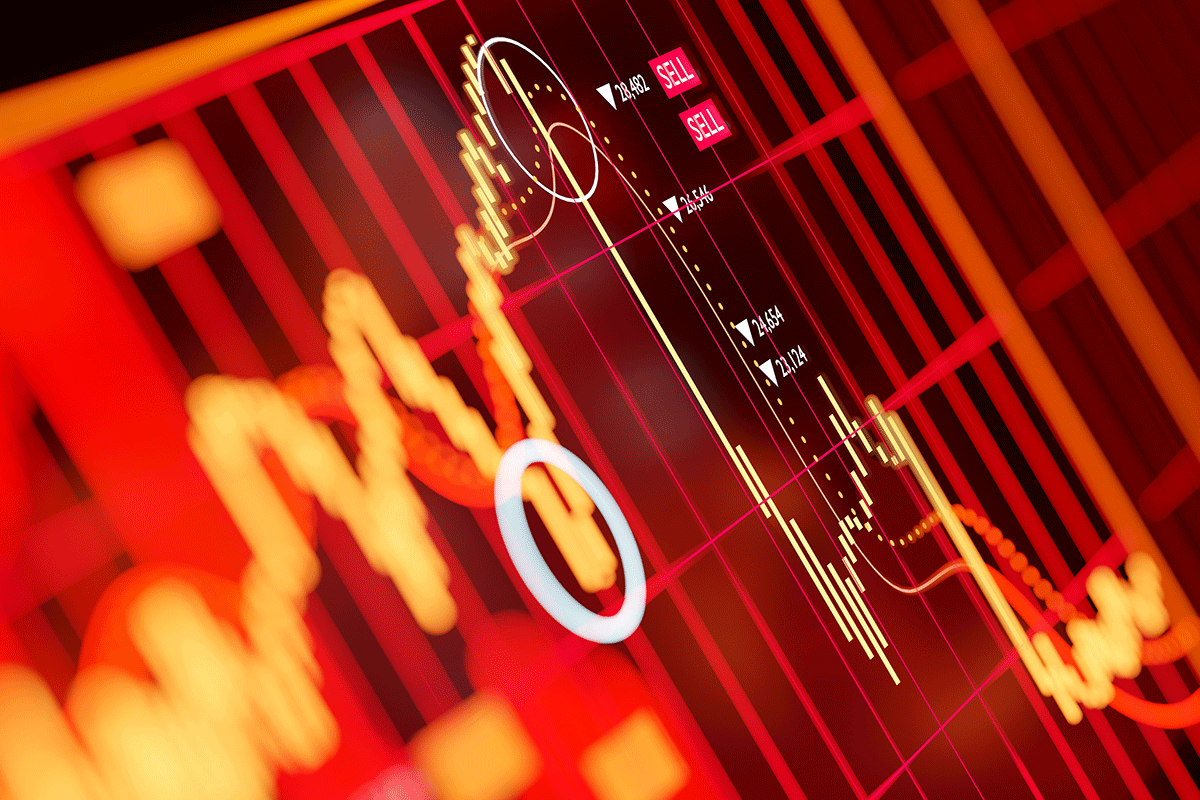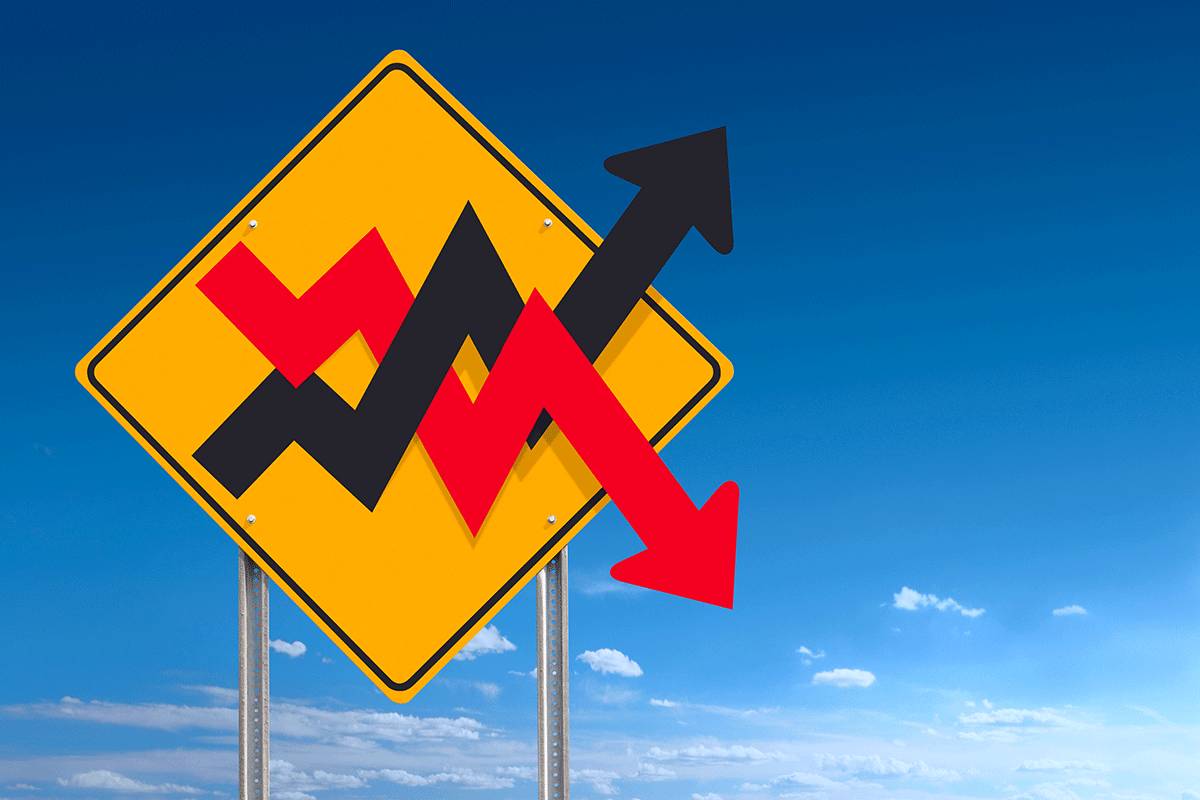What does history teach us about investing through downturns and recoveries?
The coronavirus outbreak is not the first time that markets have encountered severe problems
29th April 2020 10:39
by Rob Griffin from interactive investor
The coronavirus outbreak is not the first time that markets have encountered severe problems

Global stock markets have given investors plenty of sleepless nights this year. The extreme volatility caused by the pandemic has wiped billions of pounds from leading indices, leaving people uncertain about their financial future
The coronavirus outbreak is not the first time that markets have encountered severe problems. Over the past few decades, there have been numerous crises, including the Dot-com bubble bursting 20 years ago, the outbreak of Sars in 2003, and the global financial crisis that started in 2007.
Even though the current situation is, arguably, more serious because Covid-19 is a full-blown pandemic, history suggests stock markets do eventually recover. It is just important to be patient as a recovery will not happen overnight. In fact, the average time taken is 648 days.
Some crashes have lasted considerably longer. The financial crisis of 2007-09 saw the FTSE All-Share lose almost 50% of its value and take 1,529 days to recover, according to data from financial market data firm Refinitiv. The slump of 2000-03 saw a similar loss and 1,393 days of recovery.
The good news is that dire situations may end up providing longer-term benefits, according to Myron Jobson, personal finance campaigner at interactive investor, Moneywise’s parent company.
“Some of the best years can follow some of the worst, so it is worth hanging on in there,” he says.
He cites research by interactive investor showing how a £1,000 investment in the FTSE All Share and MSCI ACWI Index at the end Feb 2000, just before the Dot-com bust, would have grown to £2,037 and £2,907 respectively by 14 March 2020. That is a gain of almost 104% and 191%, even after recent falls.
The same amount invested at the end of September 2007, when markets were near their highest levels before the financial crash began, would now be worth £1,425 and £2,483 (to 14 March 2020), which represents an increase of 43% and 148%, respectively.
Of course, every investor wants to know what they should be doing right now. As long as you have a diverse portfolio and are investing for the long term, the simple answer is to sit tight and do nothing, according to Sarah Coles, personal finance analyst at Hargreaves Lansdown.
“The markets have always risen and fallen in the short term, and sometimes they do so dramatically, so as long as you are putting your money away for the long term, you should not allow yourself to be thrown off course,” she says.
Coles also suggests that living through this crisis will help illustrate how the value of investments can fall, as well as rise, in the short term. As we have had a decade of stock market growth, this is not something that younger investors have experienced.
Steady investing through rocky times: a beginner's guide
“We know that things can look bleak for a while before the turn, and it is still not the end of the world,” she says. “During the financial crisis, the FTSE 100 fell for 17 months before hitting the bottom and then took another four years to get back to the peak. But it did recover.”

Adrian Lowcock, head of personal investing at Willis Owen, believes the best approach is to take some time to absorb a market sell-off and then remind yourself why you are investing, how much you are putting away, and what it is that you are looking to achieve.
“Then look at your holdings, why you have chosen them, and whether the investment case has changed significantly,” he says.
“Only switch if the investment case has changed and not because the investments have fallen in price because nearly everything has gone down.”
Remember that when markets fall, the losses you make are only on paper – it is only when you redeem those falling investments that the losses are crystallised, points out Darius McDermott, managing director of FundCalibre.
“Brave investors could consider topping up,” he says. “If equities are about 20% to 30% cheaper than they were at the start of the year – and you were prepared to buy then – why not now? Just know that markets may not have bottomed and could fall further in the short term.”
Some people may prefer to move to monthly savings or drip-feed money into the markets to benefit from ‘pound cost averaging’. This technique sees investors paying a set sum each month to buy units of a fund – at whatever price they are available.
For example, if you invest £200 a month into a fund and have been buying units at £8 each, when they fall down to £6 you will receive more units for your money. It takes the guesswork out of trying to time the market, which is always best avoided (See Industry Insider, page 68).
Where you invest will depend on your investment goals and attitude to risk. However, it is potentially worth looking at how areas that were among the first to be badly hit by the coronavirus have fared from an investment standpoint.
The consumer-led recovery in China’s domestic demand that was seen at the back end of March should give investors a dose of cautious optimism, according to Ned Salter, head of global research for equities, at Fidelity International.
“As the first major nation to have seemingly contained the virus, China’s consumer recovery will shed some light on what may happen in the rest of the world as the outbreak eventually peaks and recedes,” he says.
Of course, if you are yet to invest it may be worth waiting a while longer and keeping spare money in cash, according to Andrew Merricks, fund manager at 8AM Global, who points out that it is crucial not to get sucked back in to markets too early.
“When we have seen periods of wealth destruction previously, cash has been a crucial asset to hold,” he says. “It not only helps greatly in capital preservation. it also allows you the opportunity to take part in any subsequent rally… and there will be a subsequent rally.”
That is when we could be in for a good time.
“As with previous periods of wealth destruction, a long prosperous period of recovery and growth ensues,” he adds. “If we think of the unprecedented stimulus that has been added to the mix already, this recovery could be strong indeed.”
This article was originally published in our sister magazine Moneywise, which ceased publication in August 2020.
These articles are provided for information purposes only. Occasionally, an opinion about whether to buy or sell a specific investment may be provided by third parties. The content is not intended to be a personal recommendation to buy or sell any financial instrument or product, or to adopt any investment strategy as it is not provided based on an assessment of your investing knowledge and experience, your financial situation or your investment objectives. The value of your investments, and the income derived from them, may go down as well as up. You may not get back all the money that you invest. The investments referred to in this article may not be suitable for all investors, and if in doubt, an investor should seek advice from a qualified investment adviser.
Full performance can be found on the company or index summary page on the interactive investor website. Simply click on the company's or index name highlighted in the article.